When Robert E. Howard created the character “Conan the Barbarian” in the earlier half of the twentieth century, he couldn’t have possibly foreseen the incredible impact his work would have on the future of fantasy writing. Influential within the “Lovecraft Circle”, Howard’s work in the “Sword & Sorcery” genre also gave rise to one of the most popular book and television series in recent history: George R.R. Martin and HBO’s Game of Thrones.

Sword-and-sorcery, the type of heroic fantasy made popular by the stories of Conan the Barbarian and other characters, rose to popularity in the US in the mid 1930’s. Expanding on the “adventure fiction” which was already printed in pulp journals of the era, Howard’s writing is fast-paced, and the character of “Conan” leaps from one magic-infused adventure to the next. Howard initially conceived the outline for his most famous character on a trip to Texas, during which he also imagined the fantasy land of Cimmeria. Conan himself is a “Cimmerian”, a member of a fictional group of barbarians based on the ancient Celtic and Gaelic cultures.
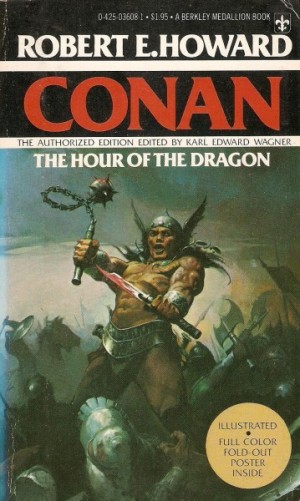 Howard not only created the fictional world of Cimmeria, but the entire “Hyborian Age”, which he filled with all conceivable manner of monsters and magic. He gave the period a feel of historical authenticity by claiming it was a vanished age that came after the sinking of Atlantis, but before the first known civilizations. His original “Conan” stories eventually led to Marvel’s Conan comic book series, which were first published after his death in 1936. Years later, the 1982 movie starring Arnold Schwarzenegger and its subsequent sequel (both of which are running on the El Rey channel – try here for listings) took Conan’s sword-and-sorcery stories off the pages and onto the screen, where they remain today.
Howard not only created the fictional world of Cimmeria, but the entire “Hyborian Age”, which he filled with all conceivable manner of monsters and magic. He gave the period a feel of historical authenticity by claiming it was a vanished age that came after the sinking of Atlantis, but before the first known civilizations. His original “Conan” stories eventually led to Marvel’s Conan comic book series, which were first published after his death in 1936. Years later, the 1982 movie starring Arnold Schwarzenegger and its subsequent sequel (both of which are running on the El Rey channel – try here for listings) took Conan’s sword-and-sorcery stories off the pages and onto the screen, where they remain today.
The influence of older sword-and-sorcery genre fiction can be seen in the pacing of modern action-adventure films, which often borrow (or steal) from the work of Tolkien, Howard, and Lovecraft. Martin has said in multiple interviews that Howard and Tolkien were among his favorite authors to read, and this influence is obvious in both the Game of Thrones show and book series. While Howard had the Hyborian Age, Tolkien’s capacity for world creation remains unparalleled. In his elaborate realm of “Middle Earth” he created entire towns, maps, and cultures, as well as a functioning fictional language. He also established strong characters with endearing personal attributes, capable of engaging in convincing romantic entanglements as well as dramatic conflict.
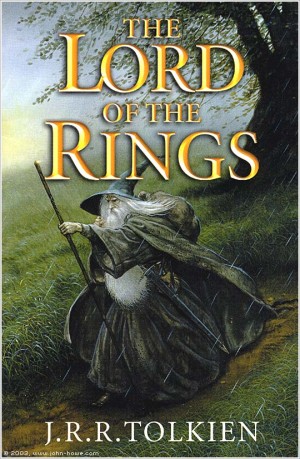 Howard and Tolkien’s success with intricate storytelling contributed to Martin’s interest in conceptualizing the fictional realms of Westeros and Essos. He has created an extensive web of relationships between several kingdoms, reminiscent of the Dwarf and Elven kingdoms of Tolkien’s Middle Earth. Detailed plotlines often involve characters from multiple realms interacting simultaneously, alternately killing and marrying one another. One could even say that his writing on fictionalized versions of life in a “Middle Ages” kingdom is reminiscent of Shakespeare‘s historical plays.
Howard and Tolkien’s success with intricate storytelling contributed to Martin’s interest in conceptualizing the fictional realms of Westeros and Essos. He has created an extensive web of relationships between several kingdoms, reminiscent of the Dwarf and Elven kingdoms of Tolkien’s Middle Earth. Detailed plotlines often involve characters from multiple realms interacting simultaneously, alternately killing and marrying one another. One could even say that his writing on fictionalized versions of life in a “Middle Ages” kingdom is reminiscent of Shakespeare‘s historical plays.
In addition to early fantasy influences, the Game of Thrones creator has also admitted to drawing from history for additional inspiration and authenticity. The comparison made by most fans and critics is to the “Wars of the Roses” that took place in England between 1455 and 1485. This war was between the houses of York and Lancaster, who have often been compared to the Starks and Lannisters. While Martin has insisted there are no direct character comparisons to historical figures, it is not hard to see which historical characters and events have played a pivotal role in the creation of one of the most successful fantasy television series ever made.
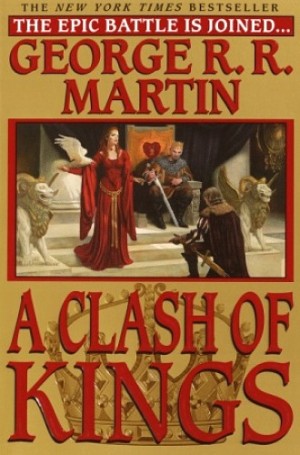 If Robert E. Howard were alive today, he would be amazed at how influential those original pulp stories of Conan the Barbarian would be in spawning some of the best books, shows, and movies in the fantasy genre. Game of Thrones proves that every great piece of fantasy pays homage to the greats that have come before, in an ongoing and exceptionally imaginative dialogue between the past and present.
If Robert E. Howard were alive today, he would be amazed at how influential those original pulp stories of Conan the Barbarian would be in spawning some of the best books, shows, and movies in the fantasy genre. Game of Thrones proves that every great piece of fantasy pays homage to the greats that have come before, in an ongoing and exceptionally imaginative dialogue between the past and present.







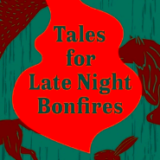

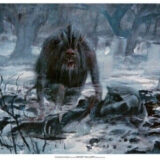

Do you happen to have a print version of this article? “Game of Thrones and the Legacy of Robert E. Howard”